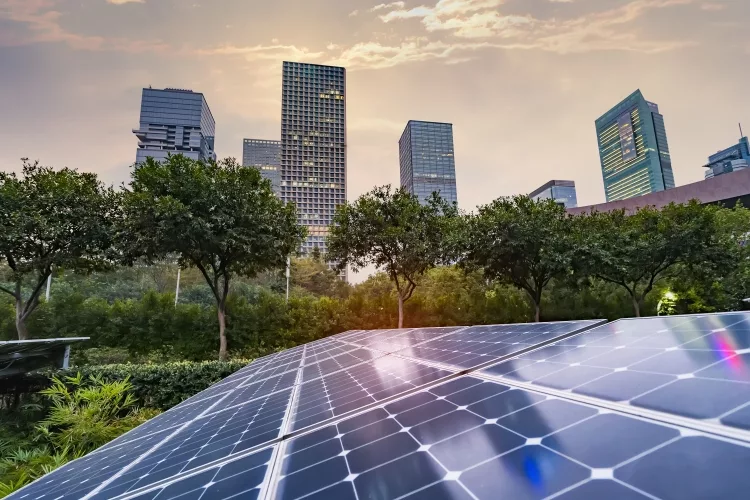by Lindsey Carter
Since Donald Trump's surprise White House win on Nov. 8 and with each new Cabinet pick, environmentalists and clean energy advocates have been wringing their hands. What does a Trump administration mean for the future of renewable energy?
Contents
As it turns out, the future of clean energy is still looking bright according to many economists and industry experts. The renewable energy industry has been booming over the past several years while fossil fuels, namely coal and oil, have been declining.

As adoption of these technologies has spread, their costs have dropped, making renewables much more competitive with coal and natural gas, and making them a much more attractive business investment.
Just last year, Nevada's primary utility, NV Energy, struck a deal for the country's cheapest electricity to date with First Solar's 100-megawatt solar farm. That's not just the cheapest solar electricity. It's just the cheapest electricity. Period.
The decreases in cost and advances in technology have led big business to take up the renewable energy mantle. Some of the nation's biggest Fortune 100 companies are also the biggest purchasers and users of clean energy. Google and Amazon each purchase more than one gigawatt of renewable energy every year with Microsoft, Facebook, and Walmart following closely behind.
Based on these corporate trends and the growth of wind and solar, it goes without saying that the renewable energy industry remains a wise investment, despite concerns in this political climate. There could even be some clean energy prospects hiding in Trump's infrastructure plan.
And if the new administration is looking to create jobs, the renewable energy industry already supports millions of them (8.1 million jobs and counting) worldwide - more than the coal, oil, and gas industries combined.
The U.S. wind and solar industries support more than 300,000 jobs, a political constituency roughly five times larger than that of coal. Energy efficiency accounts for nearly 1.9 million U.S. jobs - 10 times more than oil and gas drilling and 30 times more than coal mining.
One of Donald Trump's campaign promises was to put coal country back to work, thus stealing back some of the limelight from renewables. Trump signaled this with his EPA pick, Scott Pruitt, a longtime fossil fuel advocate and climate change denier.
Furthermore, Nobel Laureates and nuclear physicists will no longer helm the U.S. Department of Energy. Rather, former Texas Governor and Dancing with the Stars contestant Rick Perry will lead that agency. To the untrained eye, this combination portends a resurgence for U.S. coal.
However, Trump's promise is just a pipe dream. Coal industry executives even agree - Pruitt can only do so much to revive the industry. Driven by market forces and less by regulations, many of the nation's largest utilities have already begun plans to shutter coal plants and build more renewable energy generation.
So why is coal going the way of the dodo? Many coal industry advocates would like to believe that the Obama administration's "war on coal" is putting it out of business. In reality, cheap natural gas, cheap renewables, corporate demand for clean energy and weaker demand for coal have created the industry's woes.
Advancements in mining technology have reduced the need for as many miners, which have recently become more expensive to employ due to job safety and health hazards. Simply put, these are trends that Donald Trump and his administration cannot reverse.
Shy of drastic market intervention, which conflicts with free-market, conservative ideology, like direct mandates to use coal or massive coal industry tax breaks, coal is simply not coming back.
In addition to market forces being squarely behind renewables, political forces from both sides of the aisle are in clean energy's corner. For the first time, U.S. wind and solar companies gave more money to Republicans than Democrats during the 2016 election cycle.
As such, renewables have found support from Republicans in office, many whose rural districts manufacture, build and house wind turbines and solar farms. Clean energy has bridged the political divide among average Americans as well. A Pew Research Center poll from Octoberfound 83% of conservative Republicans favor more solar installations, and 75% favor more wind farms.
Those figures were 97% and 93% for liberal Democrats. Even Trump's pick for Secretary of State, Exxon CEO Rex Tillerson praised the Paris climate agreement as an effective tool for developing cleaner energy sources and combating climate change.
So what does it all mean? Considering these market factors and changing political tides, it is very unlikely that a Donald Trump presidency can derail clean energy in the United States.
Amy Myers Jaffe, Executive Director for Energy and Sustainability at the University of California, Davis, puts it best,"If for the next four years President-elect Trump would announce that everyone in the United States is going back to a landline and we can't use smartphones anymore, it wouldn't slow smartphones down.
All that would happen is we would waste a lot of money spent on having landlines. But truly, it becomes a jobs issue. It becomes a competition issue. It becomes a national security issue. So even if we make this detour, it will be just a detour. You know, the train has left the station."

About Lindsey Carter
Lindsey and Mike C. grew up in the same neighborhood. They also went to the same Cholla Middle School together. The two famillies from time to time got together for BBQ parties...
Lindsey's family relocated to California after middle school. They occasiotnally emailed each other to update what's going on in their lives.
She received Software Engineering degree from U.C. San Francisco. While looking for work, she was guided by Mike for an engineering position at the company Mike is working for. Upon passing the job interview, Lindsey was so happy as now she could finally be back to where she'd like to grow old with.
Lindset occasionally guest posted for Mike, adding other flavors to the site while helping diverse his over-passion for baseball.
 |
 |
 |
 |